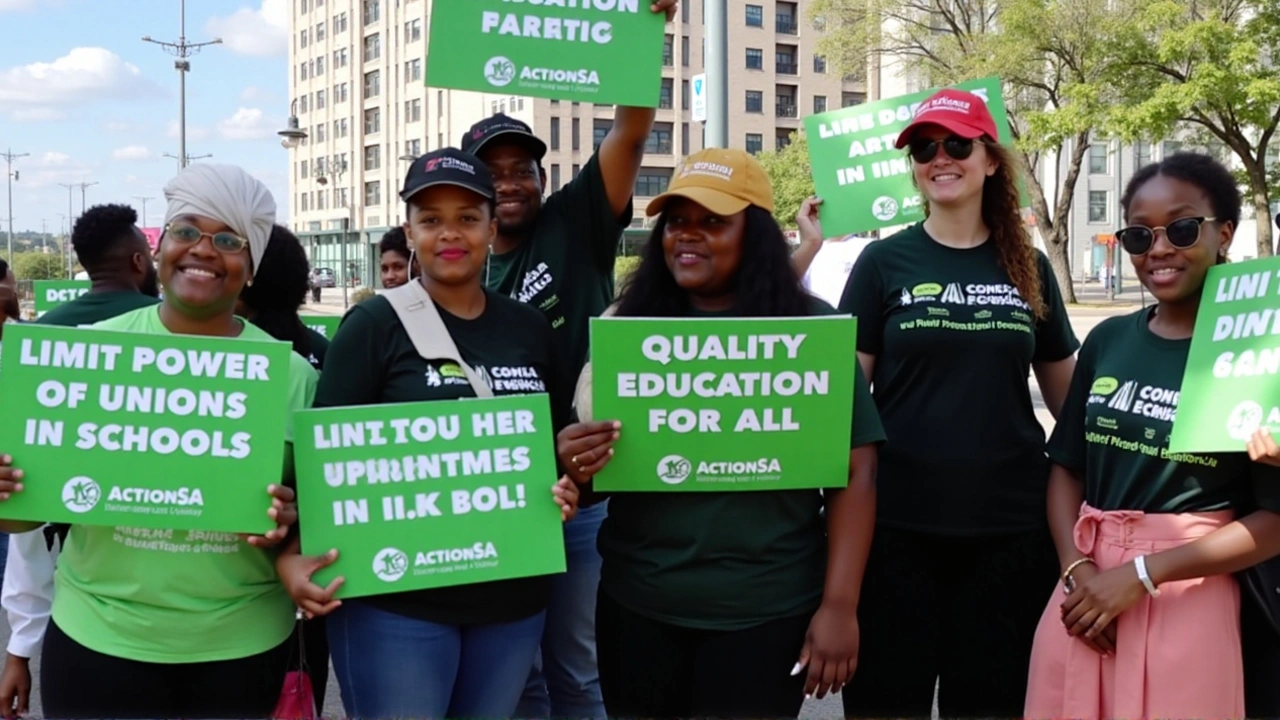ActionSA's Stand Against the BELA Bill
ActionSA has made it clear that they are not in favor of the Basic Education Laws Amendment (BELA) Bill, which is on the verge of being signed into law by President Cyril Ramaphosa. The disappointment voiced by ActionSA is rooted in their belief that the Bill could potentially sideline several important stakeholders in the education sector. Many believe that the President's imminent decision goes against the prevailing sentiments of civil society, educators, and opposition political parties.
ActionSA’s Chief Whip in Parliament, Lerato Ngobeni, has been particularly vocal about this issue. According to Ngobeni, their disappointment is tinged with a sense of predictability, given Ramaphosa's track record. She accuses the President of ignoring the opposition from Minister of Basic Education, Siviwe Gwarube, creating a rift within the government's overarching policy framework.
The Democratic Alliance's Reaction
The Democratic Alliance (DA), which is part of the Government of National Unity, has also expressed significant concerns about the BELA Bill. According to Ngobeni, if the DA were genuinely committed to being equal partners in the coalition, they should have taken stronger steps to block the signing of this Bill. She recalled an instance where DA leader John Steenhuisen had threatened to leave the coalition in response to this legislative measure. This highlights the internal tensions and pressures within the coalition government, hinting at broader governmental disunity.
Ngobeni further stressed the DA's obligation to protect the interests of children and teachers. This is particularly pressing given the Bill’s controversial elements, such as the unrestricted sale of alcohol at schools and the DBE's newfound authority to dictate school language policies, blatantly disregarding the School Governing Bodies' (SGBs) decisions.
Core Controversies Surrounding the BELA Bill
One of the most contentious aspects of the BELA Bill is the blanket lifting of the ban on the sale of alcohol at schools. Critics argue that this could set a dangerous precedent and introduce risks that outweigh any potential benefits. This provision has raised eyebrows among educators, parents, and policy-makers alike, who fear the implications this may have on the school environment.
The Bill also grants the Department of Basic Education (DBE) unilateral power to set school language policies, overruling decisions made by School Governing Bodies (SGBs). This shift is seen as a means to centralize control, stripping parents and local authorities of their voice in crucial educational decisions. Critics argue that such a move disempowers those who are closest to the students, hence undermining the democratic governance of schools.
Additionally, the introduction of mandatory Grade R without a clear curriculum framework has added to the controversy. The lack of a defined curriculum raises questions about the readiness and effectiveness of this mandate, leading many to believe that the Bill could potentially do more harm than good.
Implications for South Africa's Education System
ActionSA argues that these provisions do not address the real issues plaguing South Africa's education system. According to the party, nearly 80% of public schools in the country are considered dysfunctional. This alarming statistic underscores the need for reform that genuinely tackles the root causes of educational deficiencies. ActionSA posits that the BELA Bill, instead of reforming the system, may in fact exacerbate existing problems by disempowering SGBs and parents while failing to provide a concrete roadmap for improvement.
The party has stated its commitment to fixing the education system and is prepared to explore all possible avenues to oppose the Bill’s signing. This could potentially include legal action, as hinted by Ngobeni. The party seems resolved to put up a robust fight against the implementation of the Bill, indicating that the legislative battle is far from over.
Conclusion
The controversy surrounding the BELA Bill has opened a wider debate on the state of South Africa's education system and the effectiveness of centralized control versus local governance. With voices from different sectors opposing the Bill, the decision by President Ramaphosa will undoubtedly shape the future discourse on education reform in the country. As it stands, ActionSA's threat of legal action adds another layer of complexity to an already heated issue. The repercussions of this Bill, if signed into law, will be closely monitored by all stakeholders involved, from parents and teachers to political entities and civil society organizations.

